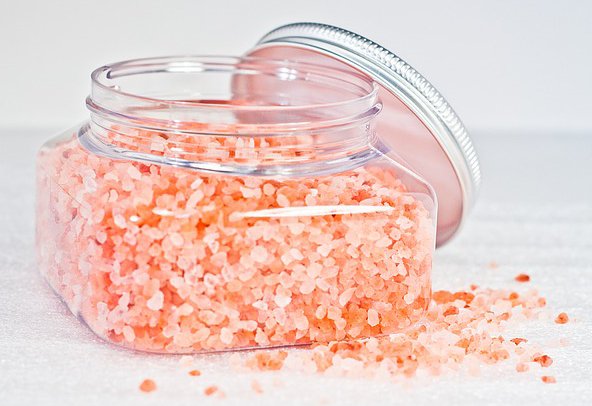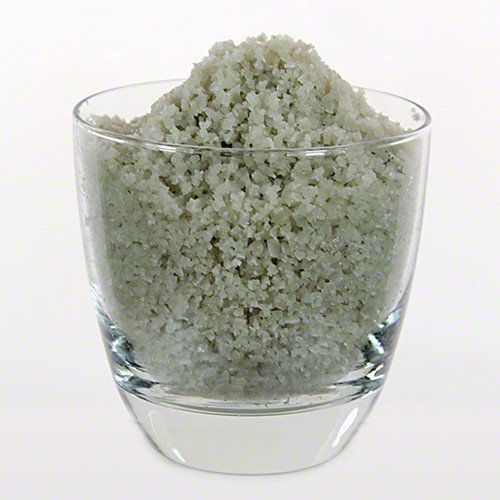Have we been tricked into thinking salt is unhealthy, when actually it is vital to life and health? I believe so.
When people are arguing about how healthy a food is, I like to go back to “first principles”. And for me, the first question is: what did our ancestors do? The best way I know how to check that is to see what Weston A Price found when he visited healthy societies, who were eating their traditional foods.
One of the commonalities he found was that all societies ate salt. In fact, they regarded salt as so important that they would trade with their enemies to get it.
Did they know why it was important? No, probably not. What they did know was that certain foods kept them healthy, and certain foods made them sick. Certain foods needed special ways of preparation, and some didn’t. This was knowledge passed down generation by generation after eons of trial and error.
So this tells me that there is something important about salt that we are not being told.

But first, let’s differentiate between types of salt.
Real Salt
Salt as it comes out of the ocean or from mineral deposits. It has a range of minerals, including all the trace minerals that we need in tiny quantities. Yes, it is primarily sodium chloride, but not solely. And it turns out, we need a lot of sodium and chloride for optimal biochemistry.
You can tell real salt, because it isn’t white. It might be grey, or pink, or even beige. But if it’s pure white, it probably doesn’t have the full range of minerals.
It might be labelled celtic sea salt, or Himalayan salt.

Supermarket salt
This is salt that has had all of the minerals except sodium chloride stripped out. Then we need to add some chemicals to make it flow nicely out of the containers, because heaven forbid it should stick. Oh, and we will add some iodine back, to prevent goitres.
Which one shall we choose?
You already know which one I’m going to choose, don’t you?
Now, iodine deficiency IS a problem, because our soils have largely been depleted, so I understand why the iodine is added back. But the other two changes outweigh that. We need to address iodine deficiency another way, but that’s a post for another day.

I’ve chosen my salt, now what?
Just use it. Use it with gay abandon – the old definition of gay, that is, not the modern one.
Add it to your food, till the food tastes good.
Add a pinch to your drinking water, to help absorption and to add minerals.
As @krazdang pointed out in her recent article, food manufacturers reduced the amount of salt and fat in many processed foods, then started adding sugar instead for flavour. So you might find that you can use less sugar if you start using salt again.
Ancestral wisdom not convincing enough?
Fair comment. Let’s dig a little deeper.
In 2011, Sally Fallon Morell, president of the Weston A Price foundation, wrote about Why Salt is Essential to Health and Happiness. She says:
Salt provides two elements that are essential for life and for good health: sodium and chloride ions. They are both elements that the body cannot manufacture itself so it must be supplied by food… While sodium is present in a variety of foods, chloride is not; adequate chloride must be obtained from salt.
She goes on to explain why salt is vital for good health, being needed for these functions:
• Regulating blood volume and pressure, including the flexibility of the blood vessels.
• The firing of the nervous system neurons.
• Sodium-dependent enzymes are required for carbohydrate digestion, to break down complex carbohydrates and sugars into monosaccharides such as glucose, fructose and galactose; sodium is also involved in transporting these monosaccharides across the intestinal wall.
• We also need salt for digesting fats as sodium is involved in the manufacture of bile, which emulsifies fats so that they can be absorbed.
• Salt is critical for development of the glial cells in the brain.
• Adrenal function
I’m not going to go into more depth here, but her article explains a lot more, and also talks about the history of salt.

Another good article, from 2012, is Exposing Mainstream Myths by Morton Satin.
Check it out here if you’d like a breakdown of why the myths we believe about salt are proven wrong. One of the things he says is:
Reduced salt intakes have repeatedly been linked in the medical literature to the following conditions:
• Insulin resistance (diabetes)
• Metabolic syndrome
• Increased cardiovascular mortality and readmissions
• Cognition loss in neonates and older adults
• Unsteadiness, falls, fractures
• Lifelong avidity for salt
Hmm, do some of those look familiar?
They should, they are becoming rampant in our modern society.
That’s one reason that I, for one, would like to see us all go back to basics, and just eat real food, like our ancestors before us.
Thanks for reading
Photos by myself, @sift666 or from Pixabay, unless otherwise stated.
Follow me for more health, nutrition, food, lifestyle and recipe posts.

Contact me in Discord, SteemitChat, or through Peerhub to ask about one on one nutritional coaching or EFT (Emotional Freedom Technique) sessions by Skype. Bitcoin, Steem or Paypal accepted.
Some of my previous posts on NUTRITION:
• The wide variety of healthy diets out and what they have in common
• The travels of Weston A Price and his discoveries about healthy diets
• Good fats vs bad fats
• DNA testing for better Health & Fitness
• DNA testing part 2: How Well Do I Digest Carbs?
• DNA testing Part 3: I can’t eat Carbs & How to Manage that
• About the Gut & Psychology syndrome (GAPS) diet Part 1 – Can it help autism?
• GAPS diet Part 2: Foods we can’t have
• GAPS diet Part 3: Foods we CAN have
• GAPS diet Part 4: What if I can’t eat some animal foods
• Salicylate intolerances
• Introduction to the Paleo diet
• How to get started on a Real Food diet Part 1
• Why use Real Food diets for healing
• How to get started on a Real Food diet Part 2
• We did a three day water fast
• Comparison of different diets – which is for you?
• Should you eat Dairy? Part 1: Pasteurisation
• Cashews and the Paleo diet
• Should you eat Dairy? Part 2: Quality


